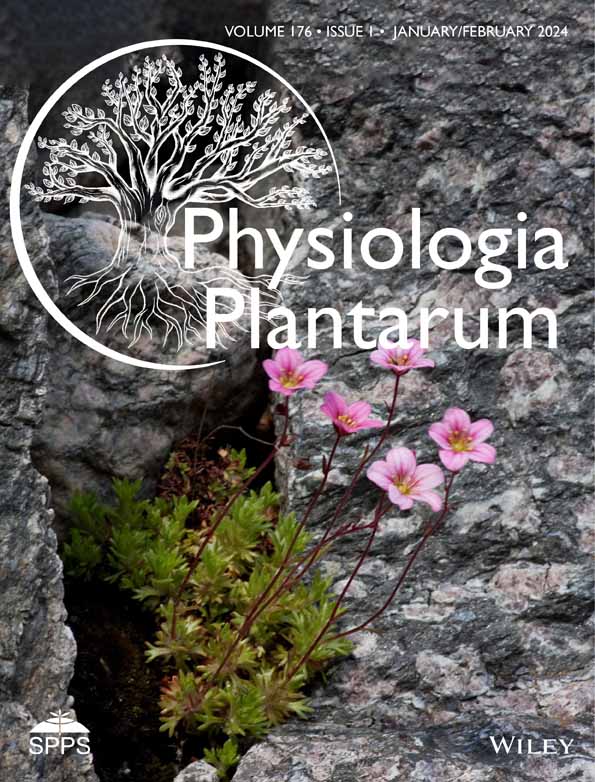更正“植物接近通过减少胚珠原基数量而降低拟南芥种子产量”。
IF 3.6
2区 生物学
Q1 PLANT SCIENCES
引用次数: 0
摘要
本文章由计算机程序翻译,如有差异,请以英文原文为准。
Correction to "Plant Proximity Reduces Seed Yield in Arabidopsis Plants by Decreasing the Number of Ovule Primordia".
求助全文
通过发布文献求助,成功后即可免费获取论文全文。
去求助
来源期刊

Physiologia plantarum
生物-植物科学
CiteScore
11.00
自引率
3.10%
发文量
224
审稿时长
3.9 months
期刊介绍:
Physiologia Plantarum is an international journal committed to publishing the best full-length original research papers that advance our understanding of primary mechanisms of plant development, growth and productivity as well as plant interactions with the biotic and abiotic environment. All organisational levels of experimental plant biology – from molecular and cell biology, biochemistry and biophysics to ecophysiology and global change biology – fall within the scope of the journal. The content is distributed between 5 main subject areas supervised by Subject Editors specialised in the respective domain: (1) biochemistry and metabolism, (2) ecophysiology, stress and adaptation, (3) uptake, transport and assimilation, (4) development, growth and differentiation, (5) photobiology and photosynthesis.
 求助内容:
求助内容: 应助结果提醒方式:
应助结果提醒方式:


